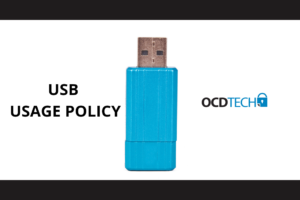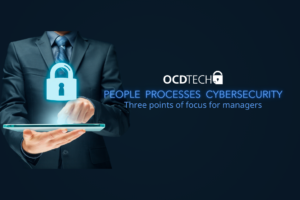Eleven months ago I asked myself, “Why would I leave a job I loved that utilized my Juris doctorate, my bachelor’s degree in management, and years of experience?” I did so because the challenge and excitement of IT Security was just too good to pass up.
Many people change careers throughout their lives but how many are moving to the IT Security sector? According to a 2017 Cybersecurity Ventures jobs report, there will be approximately 3.5 million unfilled cybersecurity positions by 2021. By now, that number has only increased. In fact, there are approximately 300,000 cybersecurity jobs available at any one time. The demand for jobs in this space far exceeds supply which makes this an ideal location for a mid-life career change.
After working in the IT Audit field for three years as a part-time employee, I finally decided to take the leap to full-time status. However, a number of factors had to be considered. First, would I be successful? Anyone that starts a new job of any type probably asks themselves this same question. However, when moving from a successful career to a new opportunity in IT, you must be sure you are willing to put in the time, both working and studying.
Second, if contemplating a move one should look for an opportunity that has strong growth potential and plenty of available work. Fortunately, OCD Tech offers both. Although I’m not as technically advanced as my co-workers, there were projects that I could step right into and get working on. Our team is highly skilled and experienced, yet there were projects and tasks I could work on that furthered the team goals. This allowed the training to begin immediately.
There were several key adjustments I had to make when switching to becoming a full-time IT Auditor. First, I now work remotely from my home. After twenty-five years of commuting to an office, working and conversing with co-workers, and managing teams of a dozen or more people, the change to the quiet solitude of my home was jarring. I had to create a white noise background to simulate an office environment. Skype Business chats with my co-workers in another state helped with the transition as I still discussed issues and problems with co-workers, albeit using a different method.
The adjustment with training was also crucial to my success to this point. In my previous career, I would arrange meetings in a conference room with five or more people and present the subject matter for training. However, our work requirements at the time I switched careers simply didn’t allow time for that method. The training was thorough, but “on the fly”. I was trained individually focusing on the task at hand which allowed the opportunity for me to ask follow up questions as well as receive “on the job” training to handle issues as they arose. In retrospect, it was and remains the most efficient training I could have received. While there were periods of group training via conference calls, etc., the individual review I received was the most effective method. Taking notes, and then retyping them for my trainer to review, proved to be a valuable reference tool as projects evolved.
All of my kids were fortunate enough to attend a French K-8 immersion grade school. Learning a second language at age five is much different than doing so during a mid-life career change. Reading emails and listening to phone conferences sometimes made me feel like a completely new language was being spoken. There were definitely a few times when I had Google on standby ready to search for an acronym to determine what it meant, and what we were really talking about. I also found that some acronyms are client specific. Thankfully my co-workers were patient as I asked if a client-specific acronym really meant something else. Always better to ask than assume.
One fortunate aspect of my previous career was coordinating and responding to all of our client audits for the law firms that I was employed with. I worked for a default servicing law firm, which meant compliance requirements with hundreds of federal and state laws along with dozens of client mandates, all of which were tested. Ensuring all pre-audit questions were answered, and preparing for all remaining questions for the on-site audit taught me to be prepared for the expected, and more so the un-expected questions and scenarios. This experience is a direct carryover to IT auditing. I quickly learned that any work produced must always be in an auditable format. We may not always receive a two or three-month notice of an audit date as we did with the law firm. In some cases, it may be two or three months after work is completed before it is audited. There is no way to remember every single step or task completed for each project. Thus, it is crucial to document as much of your work as possible. Via emails, notes, or a formal standard operating procedure (SOP) document, each step can be documented which can save hours of time when responding to questions from a third-party auditor. I’ve always trained my employees that “five minutes now can save hours later”. Take the extra minute to save the email, make the note, or respond to the question. It will save hours down the road.
Moving to a different career doesn’t mean you have to forget your experience up to that point. Aspects of most professions can be used in your new IT career. Methods used for problem resolution, customer service and satisfaction, project completion, and team management are transferable to the auditing arena. I haven’t been hesitant to offer options for problem resolution, and thankfully management at OCD Tech is open to suggestions and new ideas. Sometimes new personnel with a different background can improve the efficiency of project completion.
Finally, in the end, it is all about the “details”. Each applicable letter must be capitalized, the period or space in the right spot, or the correct recipient listed on your email. I’ve learned to work swiftly, but to then take the time to check the details. I have made mistakes. Ones that I’ve learned from. Every action I take is a reflection upon OCD Tech, and I want to ensure it is positive.
The decision to change careers has been a good one. Every day is a learning opportunity and I take advantage of each one. There are plenty of challenges ahead, and lots of material to study. However, I’m ready to prove I’m up for the task.



